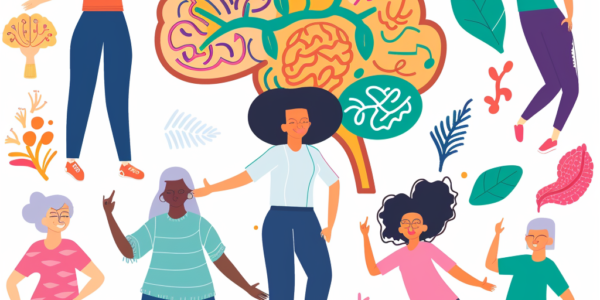Is Hormone Replacement Therapy for Menopause Good for Your Heart?
Learn about the potential link between Hormone Replacement Therapy (HRT) for menopause and heart health, including the best timing to start HRT for cardioprotective benefits. Discover the importance of estrogen in protecting the heart and blood vessels from disease, and how long HRT can be safely taken.
New Drug May Delay Onset of Menopause Indefinitely, Researchers Claim
Researchers at Oviva Therapeutics claim to have developed a drug that could delay the onset of menopause indefinitely, offering relief from uncomfortable symptoms. The injection works by increasing levels of anti-Mullerian hormone and could potentially prevent menopause altogether. While the drug is currently being tested for safety in rodents, it may undergo human trials in the future. However, if approved for use in humans, the treatment could be costly. The potential impact of this new drug goes beyond fertility, offering hope for a future where women have more control over their reproductive health and menopausal symptoms.
The Impact of Menopause on Cognitive Functions
Menopause can impact cognitive functions in women, leading to memory lapses, impaired attention, and disruptions in executive function. Declining estrogen levels can cause ‘brain fog’ and challenges in verbal fluency, affecting work performance and everyday tasks. Understanding these cognitive alterations is crucial for women going through menopause.
The Lancet publishes series of papers addressing menopause and the need for a new approach to treatment and support
The Lancet has published a series of papers addressing menopause, emphasizing the need to invest in women and accelerate progress. The authors advocate for empowering women during this life stage, positioning the patient as an expert in their own condition. They argue that a medicalized view of menopause disempowers women, highlighting the challenges women may face during the menopausal transition. This underscores the need for a comprehensive and supportive approach to women’s health during menopause.
Woman Mistakenly Believed She Had Early Onset Dementia, Discovers Symptoms Were Caused by Menopause
Discover how a woman’s misdiagnosis of early onset dementia led to the realization that she was actually experiencing menopause. Now, as a menopause trainer, she has helped over 19,000 women and men gain a better understanding of menopause, emphasizing the importance of support and awareness during this stage of life.
Severe Menopause Symptoms Linked to Dementia Risk, Study Suggests
A recent study from the University of Calgary suggests that severe menopausal symptoms could be early indicators of dementia. Dr. Zahinoor Ismail’s research on Canadian brains and aging from CAN-PROTECT has found a correlation between menopausal symptoms and cognitive impairment, neuropsychiatric symptoms, and dementia risk. The study, which includes 2,400 participants, highlights the impact of menopause on the brain and the potential benefits of estrogen-based treatments.
New Studies Suggest Less Concern for Most Middle-Aged Women Regarding Cardiovascular Risks of Migraines and Menopause Symptoms
Recent studies featured in the journal Menopause suggest that for most middle-aged women, concerns about cardiovascular risks related to migraines, hot flashes, and night sweats may be less significant if they do not experience both migraines and prolonged hot flashes and night sweats. The focus should be on addressing other contributing factors that elevate cardiovascular risk, such as ensuring adequate sleep, engaging in regular exercise, adopting a healthy diet, quitting smoking, and managing blood pressure, blood sugar, cholesterol, and weight. The research, based on a long-term study involving over 1,900 women, offers valuable insights into health patterns during menopause.
Middle-aged couples lose spark due to hormone changes, experts reveal
Discover the reason why middle-aged couples may experience a loss of spark in their relationship, known as the ‘couplepause’. Hormone changes affecting both partners simultaneously could be to blame, leading to a decrease in sexual drive. This can have a detrimental impact on the emotional and financial well-being of women in ‘grey divorce’ situations. Addressing sexual health needs during mid-life is crucial for pursuing healthy aging.
Breaking the Stigma: Understanding Menopause and Supporting Menopausal Women
Dr. Traci Kurtzer, a gynecologist and menopause specialist, discusses the impact of the knowledge gap and stigma associated with menopause. Menopause is often shrouded in misconceptions and stigmas, leading to a lack of awareness and support for women experiencing this phase of life. By addressing the stigma and fostering open conversations, women can access the support and resources necessary to manage the physical and emotional aspects of menopause.
Understanding Male Menopause and Testosterone Decline
As men age, they undergo significant hormonal changes, particularly in their testosterone levels. The decline in testosterone can have a profound impact on sexual function and physical traits. Testosterone, a hormone vital for the development of male sexual characteristics, naturally…










